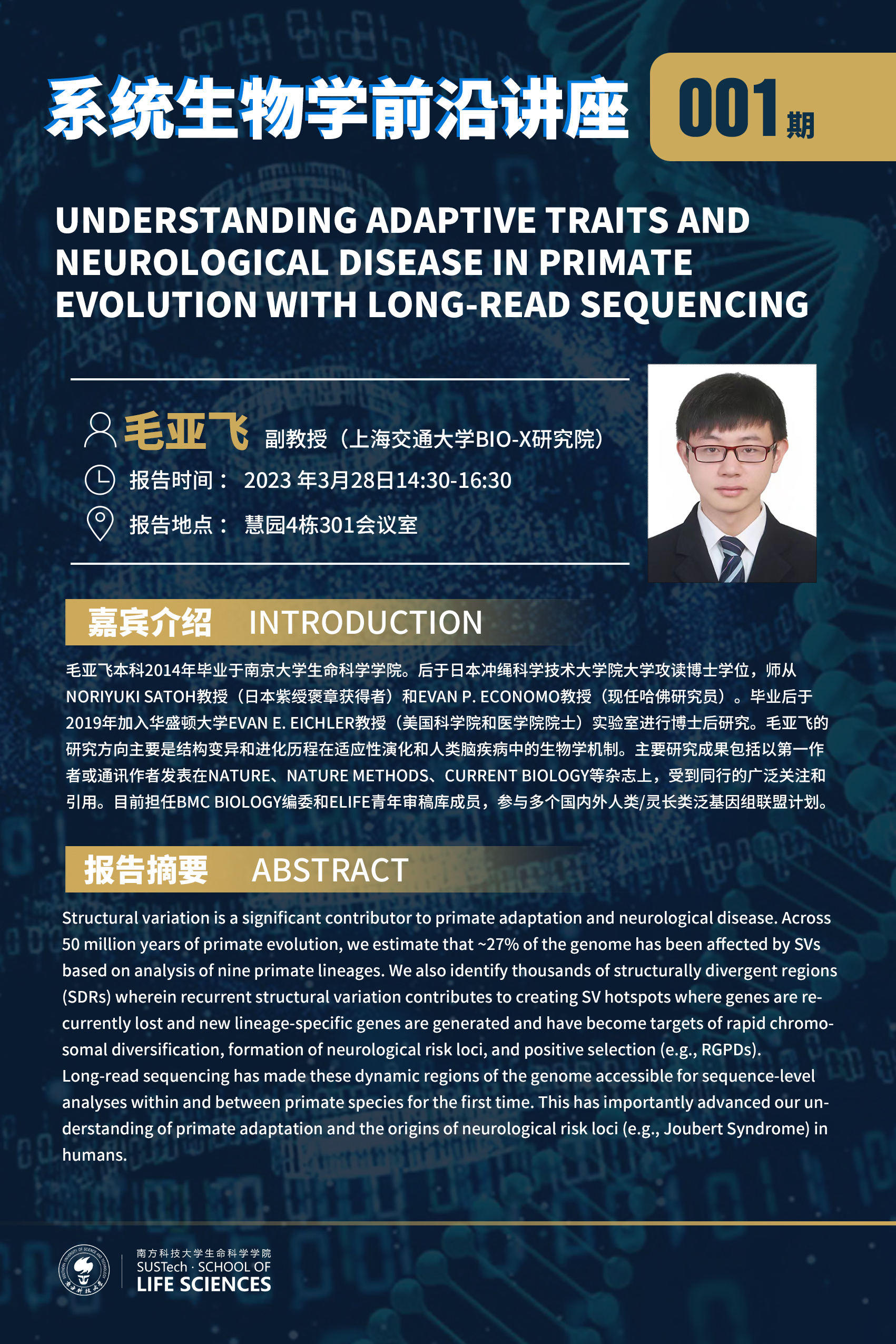
主讲人: 毛亚飞 副教授
时间: 2023年3月28日(周二)下午14:30-16:30
地点: 慧园4栋301会议室
题 目:Understanding adaptive traits and neurological disease in primate evolution with long-read sequencing
主 讲:毛亚飞 副教授
时 间:2023年3月28日(周二)下午14:30-16:30
地 点:慧园4栋301会议室
个人简介:
毛亚飞本科2014年毕业于南京大学生命科学学院。后于日本冲绳科学技术大学院大学攻读博士学位,师从Noriyuki Satoh教授(日本紫绶褒章获得者)和Evan P. Economo教授(现任哈佛研究员)。毕业后于2019年加入华盛顿大学Evan E. Eichler教授(美国科学院和医学院院士)实验室进行博士后研究。毛亚飞的研究方向主要是结构变异和进化历程在适应性演化和人类脑疾病中的生物学机制。主要研究成果包括以第一作者或通讯作者发表在Nature、Nature Methods、Current Biology等杂志上,受到同行的广泛关注和引用。目前担任BMC Biology编委和eLife青年审稿库成员,参与多个国内外人类/灵长类泛基因组联盟计划。
摘要:
Structural variation is a significant contributor to primate adaptation and neurological disease. Across 50 million years of primate evolution, we estimate that ~27% of the genome has been affected by SVs based on analysis of nine primate lineages. We also identify thousands of structurally divergent regions (SDRs) wherein recurrent structural variation contributes to creating SV hotspots where genes are recurrently lost and new lineage-specific genes are generated and have become targets of rapid chromosomal diversification, formation of neurological risk loci, and positive selection (e.g., RGPDs). Long-read sequencing has made these dynamic regions of the genome accessible for sequence-level analyses within and between primate species for the first time. This has importantly advanced our understanding of primate adaptation and the origins of neurological risk loci (e.g., Joubert Syndrome) in humans.